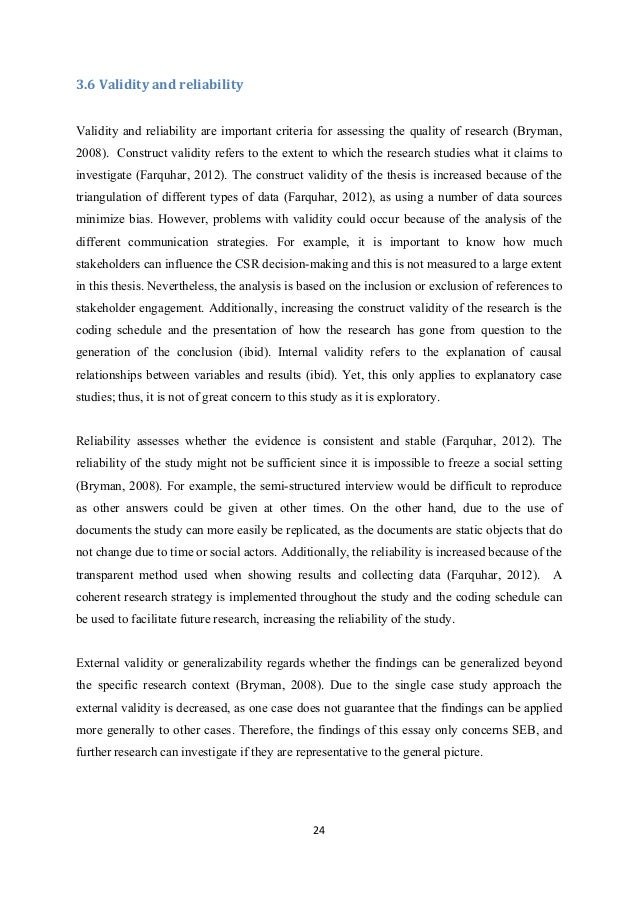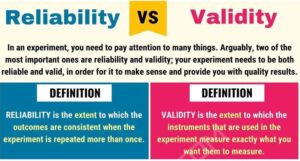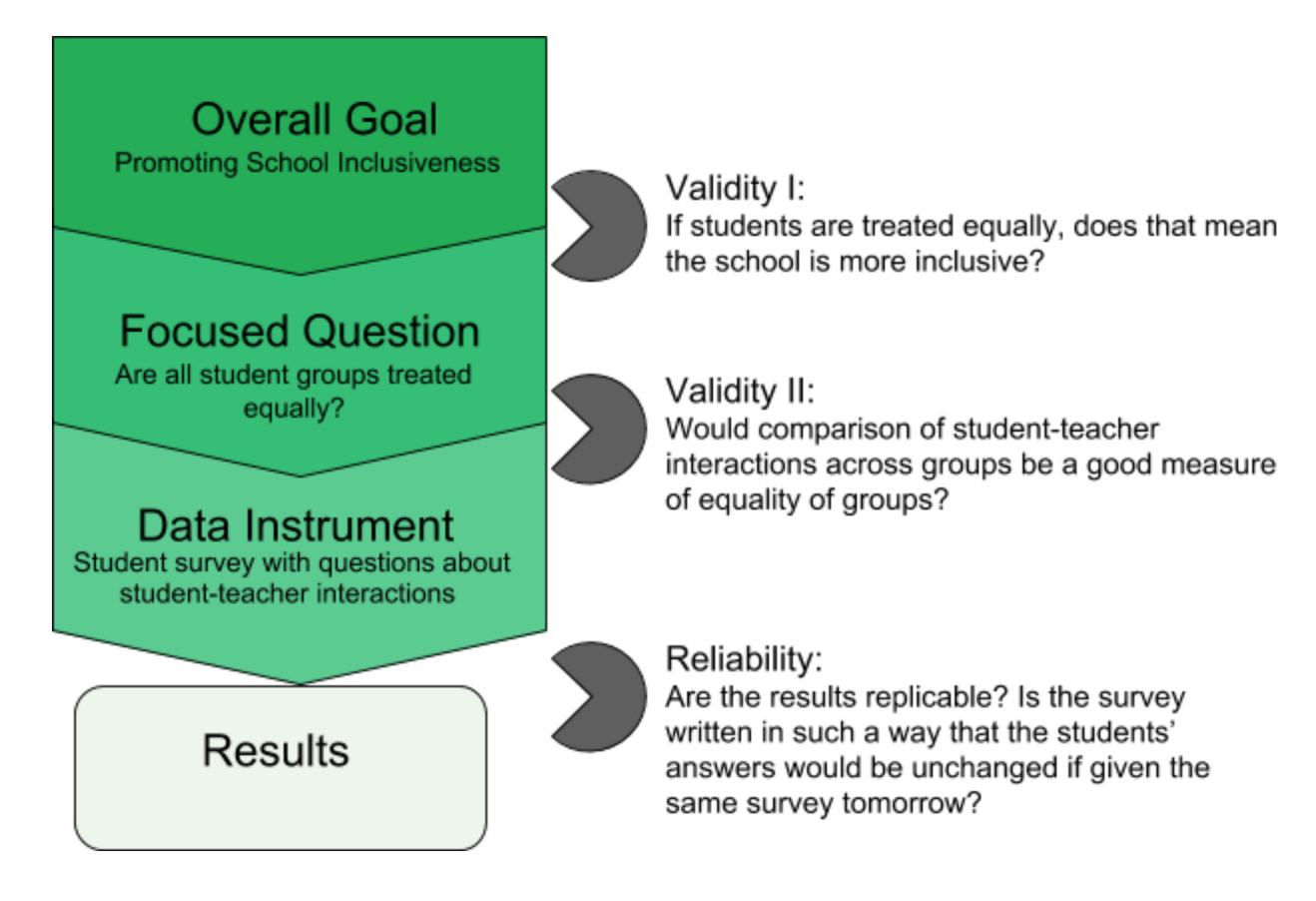
Categories
VALIDITY AND RELIABILITY 3 VALIDITY AND RELIABILITY INTRODUCTION In Chapter 2, the study’s aims of exploring how objects can influence the level of construct validity of a Picture Vocabulary Test were discussed, and a review conducted of the literature on the various factors that play a role as to how the validity level can be influenced The two most important and fundamental characteristics of any measurement procedure are reliability and validity. Reliability and validity tells us whether a research being carried out studies what it is meant to study, and whether the measures used are consistent. These two principles are discussed below. Reliability Validity means that the results you find will be factually correct. It is often best to draw up your questions after you have finished your literature review (which is also most reliable!). You can then better judge which concepts are important, and use these concepts to draw up different questions (indicators)
A professional and committed thesis tutor
· Reliability refers to the consistency of the measurement. Reliability shows how trustworthy is the score of the test. If the collected data shows the same results after being tested using various methods and sample groups, the information is reliable. If your method has reliability, the results will be blogger.comted Reading Time: 9 mins VALIDITY AND RELIABILITY 3 VALIDITY AND RELIABILITY INTRODUCTION In Chapter 2, the study’s aims of exploring how objects can influence the level of construct validity of a Picture Vocabulary Test were discussed, and a review conducted of the literature on the various factors that play a role as to how the validity level can be influenced Dissertation Essentials Research Strategy Data Analysis Reliability in research Reliability, like validity, is a way of assessing the quality of the measurement procedure used to collect data in a dissertation. In order for the results from a study to be considered valid, the measurement procedure must first be reliable

Understanding reliability vs validity
· The purpose of a threats to validity section in a quantitative study or dissertation is to acknowledge any factors that might have undue influence on the research or skew the data being collected. A research study can only be as unbiased as the researcher and the circumstances that he or she is working with · Reliability refers to the consistency of the measurement. Reliability shows how trustworthy is the score of the test. If the collected data shows the same results after being tested using various methods and sample groups, the information is reliable. If your method has reliability, the results will be blogger.comted Reading Time: 9 mins VALIDITY AND RELIABILITY 3 VALIDITY AND RELIABILITY INTRODUCTION In Chapter 2, the study’s aims of exploring how objects can influence the level of construct validity of a Picture Vocabulary Test were discussed, and a review conducted of the literature on the various factors that play a role as to how the validity level can be influenced

What is the Validity?
Dissertation Essentials Research Strategy Data Analysis Reliability in research Reliability, like validity, is a way of assessing the quality of the measurement procedure used to collect data in a dissertation. In order for the results from a study to be considered valid, the measurement procedure must first be reliable Validity means that the results you find will be factually correct. It is often best to draw up your questions after you have finished your literature review (which is also most reliable!). You can then better judge which concepts are important, and use these concepts to draw up different questions (indicators) · In Quantitative research, reliability refers to consistency of certain measurements, and validity – to whether these measurements “measure what they are supposed to measure”. Things are slightly different, however, in Qualitative research

What is Reliability?
Validity means that the results you find will be factually correct. It is often best to draw up your questions after you have finished your literature review (which is also most reliable!). You can then better judge which concepts are important, and use these concepts to draw up different questions (indicators) · The purpose of a threats to validity section in a quantitative study or dissertation is to acknowledge any factors that might have undue influence on the research or skew the data being collected. A research study can only be as unbiased as the researcher and the circumstances that he or she is working with The two most important and fundamental characteristics of any measurement procedure are reliability and validity. Reliability and validity tells us whether a research being carried out studies what it is meant to study, and whether the measures used are consistent. These two principles are discussed below. Reliability
No comments:
Post a Comment